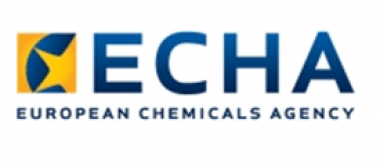ECHA announces timeline for PFAS restriction evaluation
The European Chemicals Agency (ECHA) aims to complete its scientific evaluation of the proposed EU-wide restriction on per- and polyfluoroalkyl substances (PFAS) by the end of 2026.
In a note, published today, ECHA provides an update on its assessment of the proposal and clarifies the expected timeline. This follows the publication of the updated restriction proposal, which took place on 20 August 2025.
The European Chemicals Agency’s (ECHA) scientific committees for Risk Assessment (RAC) and for Socio-Economic Analysis (SEAC) have been evaluating the proposal to restrict PFAS in the EU/EEA since March 20231. This restriction proposal covers more than 10 000 substances and many sectors of application. Following its submission to ECHA, the subsequent six-month consultation has resulted in more than 5 600 responses from allstakeholder groups (Industry, NGOs, institutions, academia, national authorities, agencies, civil society actors, citizens etc.).
The Committees’ evaluation is being carried out in batches, focusing on the 14 different sectors2 analysed in the originally submitted restriction proposal, as well as PFAS manufacturing and horizontal issues. In parallel, the national authorities of Denmark, Germany, the Netherlands, Norway and Sweden, who prepared the proposal (the Dossier Submitter), have progressively updated their initial report to address the significant number of responses received during the consultation, sector by sector. This updated report, called the Background Document, forms the basis for the Committees’ opinions.
The information from the consultation has also led to the identification of a further eight sectors3. These sectors have been assessed by the Dossier Submitter and incorporated into the now completed Background Document, which has been received by ECHA on 24 June 2025 and made available to RAC and SEAC and to the public on ECHA’s website4.
It is the collective goal of ECHA, the Dossier Submitter and the European Commission to allow for appropriate action to be taken to protect human health and the environment, as soon as is practicably possible. The European Commission, in the Chemicals Industry Action Plan adopted on 8 July 2025, has also communicated that ‘The scientific assessment of the Universal PFAS restriction by the ECHA’s committees is ongoing and scheduled to conclude in 2026. The Commission is committed to presenting a proposal as soon as possible after receiving ECHA’s opinion, with the overall objective of minimising PFAS emissions’.
Considering the sheer scale of this complex restriction proposal, RAC and SEAC have already made good progress in their opinion making on the 14 sectors covered by the original restriction proposal, plus PFAS manufacturing and horizontal issues. However, including a further 8 sectors into the Committees’ evaluations now would require significant time beyond 2026 to finalise the opinion with these sectors. Therefore, in the ongoing procedure, the Committees will not carry out a sector specific evaluation of these further eight sectors. However, the evaluation of horizontal issues will cover, amongst others, the hazard assessment and risk management measures of general applicability that are able to monitor and limit emissions of PFAS to the environment (e.g. reporting requirements, PFAS management plan).
European Chemicals Agency




